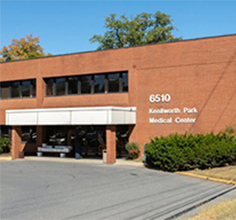
We all know vitamins and nutrients are essential for good living, but there are so many different types that keeping up can be challenging. One vitamin we’re all familiar with is vitamin D, but what exactly is this common nutrient and why is it so important for health? In this brief article brought to you by Southern Maryland Medical Group, we explore exactly this. If you live in the area and are looking for a new primary care physician, then call Southern Maryland Medical Group to schedule a convenient appointment. Our primary care doctors can also arrange walk-in appointments for more urgent needs.
Vitamin D is an extraordinary nutrient that our bodies need for several critical functions. For beginners, it aids in the absorption of calcium and phosphorus, which are fundamental for maintaining healthy bones and teeth. By regulating calcium levels, Vitamin D contributes to skeletal integrity and helps prevent conditions like osteoporosis and rickets.
Research has also shown that Vitamin D plays a crucial role in supporting the immune system. It enhances the function of immune cells, empowering our bodies to fight off infections and reduce the risk of chronic diseases. On a similar note, adequate levels of Vitamin D have also been associated with a reduced likelihood of developing autoimmune disorders, such as multiple sclerosis and rheumatoid arthritis.
Beyond its role in physical health, Vitamin D has been linked to mental well-being as well. Studies have indicated that low levels of Vitamin D may contribute to an increased risk of mood disorders like depression and anxiety. Adequate exposure to sunlight, which promotes the synthesis of Vitamin D in the body, has been associated with improved mood and overall mental health.
There’s a good reason why vitamin D is also known as "the sunshine vitamin." Sunlight exposure is the primary natural source of Vitamin D. When ultraviolet B (UVB) rays from the sun interact with our skin, it triggers the synthesis of Vitamin D. However, it is important to strike a balance between getting enough sunlight for Vitamin D synthesis and protecting our skin from harmful UV radiation.
As for dietary sources of Vitamin D, there are fatty fish like salmon and mackerel, fortified dairy products, egg yolks, and mushrooms exposed to ultraviolet light. However, it can be challenging to obtain sufficient Vitamin D from diet alone, especially for individuals with dietary restrictions or limited sun exposure.
The consequences of Vitamin D deficiency can be far-reaching. In addition to weakened bones and an increased risk of fractures, individuals lacking Vitamin D may experience muscle weakness, fatigue, and compromised immune function.
Regular monitoring of Vitamin D levels and consulting with healthcare professionals can help ensure optimal health and prevent complications associated with deficiency. So, embrace the sun, make informed dietary choices, and harness the power of Vitamin D for a healthier and brighter future.
Call Southern Maryland Medical Group to schedule an appointment with a primary care physician in Hyattsville today. Our friendly staff are on standby for your call.
Southern Maryland Medical Group has 3 convenient locations to provide professional medical care services in the Southern Maryland area. Call or schedule an appointment with one of our locations to get medical care help.

5801 Allentown Road, Suite 400 Camp Spring, MD 20746
Phone: 301-868- 0150
Billing Inquiries: 301-552-1270
Fax: 301-868-0243

7500 Greenway Center, Dr #1200 Greenbelt, MD 20770
Phone: 301-486-7580
Billing Inquiries: 301-552-1270
Fax: 301-486-7581

6510 Kenilworth Ave, Ste 1400, Riverdale MD 20737
Phone: 301-618-0771
Billing Inquiries: 301-552-1270
Fax: 301-618-0772